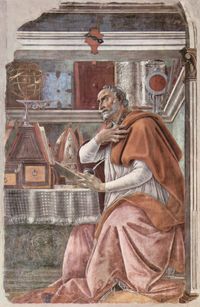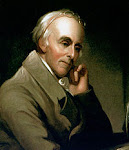"But as men are prone to estimate sins, not by reference to their inherent sinfulness, but rather by reference to their own customs, it frequently happens that a man will think nothing blameable except what the men of his own country and time are accustomed to condemn, and nothing worthy of praise or approval except what is sanctioned by the custom of his companions; and thus it comes to pass, that if Scripture either enjoins what is opposed to the customs of the hearers, or condemns what is not so opposed, and if at the same time the authority of the word has a hold upon their minds, they think that the expression is figurative."
--St. Augustine, On Christian Doctrine, part 7.
William Livingston on Church-State Separation
21 hours ago













































